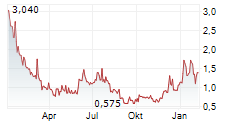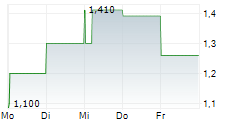
APOLLO study investigating MT-601 in patients with relapsed lymphoma: 78% of patients achieved objective response rates, with 44.4% demonstrating complete response (CR)
MT-601 was observed to be well tolerated in all study participants with no observation of immune-effector cell associated neurotoxicity syndrome (ICANS)
HOUSTON, Dec. 19, 2024 (GLOBE NEWSWIRE) -- Marker Therapeutics, Inc. (Nasdaq: MRKR), a clinical-stage immuno-oncology company focusing on developing next-generation T cell-based immunotherapies for the treatment of hematological malignancies and solid tumor indications, today provided an update on the progress and clinical observations from the Phase 1 APOLLO study, with a data cutoff date of September 10.
The Company's Phase 1 APOLLO study is investigating MT-601, a multi-antigen recognizing (MAR) T cell product (formerly known as multi-tumor associated antigen-specific T cells, or multiTAA), in patients with lymphoma who have relapsed after anti-CD19 chimeric antigen receptor (CAR) T cell therapy or where anti-CD19 CAR-T cells are not an option. A total of 10 patients have been treated in the study, for which clinical data is currently available for 9 patients from 5 clinical sites across the United States. Study participants showed early objective responses with and without lymphodepletion. However, immunomonitoring data confirmed that lymphodepletion enhanced the expansion and persistence of MAR-T cell clones in vivo.
Key findings from the APOLLO study include:
- Safety
Infusion of MT-601 was well tolerated in all study participants, with no observation of immune-effector cell associated neurotoxicity syndrome (ICANS) and one reported Grade 1 cytokine release syndrome (CRS). No dose limiting toxicities (DLTs) have been reported to date.
- Efficacy
In the first dose cohort, 7 out of 9 patients achieved objective responses (78%) at first response assessment, with 4 patients demonstrating complete response (CR; 44.4%) (Table 1).
- Time in Follow-Up
Long-term follow-up of 6 to 12 months is currently available for three patients (Table 2). Ongoing follow-up visits are being conducted to assess the durability of responses. All study participants are monitored closely to ensure comprehensive data collection and patient safety.
Table 1: MT-601 shows objective responses at first disease assessment.
| No. of Patients Treated* | No. Prior Lines of Therapy | Response Rate at First Assessment | CR at First Assessment | ||
| 9 | 3 - 12 | 78 | % | 44.4 | % |
CR, Complete Response. Data as of September 10, 2024.
Table 2: Duration of patient follow-up in Phase 1 APOLLO study.
| Longest Follow-Up | No. of Patients | Clinical Response |
| = 12 months | 1 | CR |
| = 6 months | 2 | CR, PR |
| 1-4 months | 4 | CR, PR |
CR, Complete Response; PR, Partial Response. Data as of September 10, 2024.
"We are encouraged by the positive clinical outcomes we are observing in our Phase 1 APOLLO study," said Monic Stuart, M.D., CMO of Marker Therapeutics. "Observing objective responses at the first response assessment in patients who have been heavily pre-treated and have relapsed after 3 to 12 prior lines of therapy, including CAR-T cells and bispecific antibodies, is a tremendous achievement and we are encouraged by the benefit and hope our therapy may provide to patients and their families. We will continue to monitor long-term treatment effects and durability of response and look forward to enrolling additional participants in this study."
Although CD19-targeting CAR-T cell therapies have gained acceptance as treatment for patients with lymphoma, 40-60% of patients relapse within the first year of treatment (Chong et al, N Engl J Med, 2021; Neelapu et al, Blood, 2023.). These post-CD19 CAR-T relapsed patients currently have no approved standard of care, illustrating a high unmet medical need and urgency for new therapies. In addition, CAR-T cells are associated with severe side effects such as CRS or ICANS and may increase the risk for secondary malignancies (U.S. Food and Drug Administration, November 28, 2023). Data from clinical trials to date have demonstrated that MAR-T cells are well tolerated with no evidence of ICANS. In addition, Marker's non-engineered MAR-T cell approach selectively expands natural tumor-specific T cells from a patient's blood that can recognize a broad range of tumor antigens, minimizing the risk of mutagenesis.
"We are enthusiastic about the progress we have made with MT-601 and our study in patients with lymphoma who have relapsed after CD19 CAR-T cell therapy and for whom there is currently no approved drug on the market," said Juan Vera, M.D., President and CEO of Marker Therapeutics. "We believe that MT-601 can address this unmet medical need in a large and growing patient population. We will continue to treat additional participants in this Phase 1 study to validate our observations and to gather comprehensive safety and durability data to identify the best developmental strategy for MT-601 development in patients with lymphoma."
About MT-601
The Company's lead product, MT-601, is a multi-antigen recognizing (MAR) T cell product that utilizes a non-genetically modified approach that specifically targets six different tumor antigens upregulated in lymphoma cells (Survivin, PRAME, WT-1, NY-ESO-1, SSX-2, MAGEA-4). Marker is currently investigating MT-601 in the Company-sponsored Phase 1 APOLLO trial (clinicaltrials.gov identifier: NCT05798897) for the treatment of patients with lymphoma who relapsed after or are ineligible for anti-CD19 CAR-T cell therapies.
About APOLLO
The APOLLO trial (clinicaltrials.gov Identifier: NCT05798897) is a Phase 1, multicenter, open-label study designed to evaluate the safety and efficacy of MT-601 in participants with relapsed or refractory lymphoma who either failed anti-CD19 chimeric antigen receptor (CAR) T cell therapy or are ineligible for anti-CD19 CAR-T cell therapy. The primary objective of this exploratory Phase 1 clinical trial is to evaluate the optimum dose, safety, and preliminary efficacy of MT-601 in participants with various lymphoma subtypes. Under the APOLLO trial, it is anticipated that nine clinical sites across the United States will cumulatively enroll up to approximately 30 participants during the dose escalation phase.
About MAR-T cells
The multi-antigen recognizing (MAR) T cell platform (formerly known as multiTAA-specific T cells) is a novel, non-genetically modified cell therapy approach that selectively expands tumor-specific T cells from a patient's/donor's blood capable of recognizing a broad range of tumor antigens. Unlike other T cell therapies, MAR-T cells allow the recognition of hundreds of different epitopes within up to six tumor-specific antigens, thereby reducing the possibility of tumor escape. Since MAR-T cells are not genetically engineered, Marker believes that its product candidates will be easier and less expensive to manufacture, with an improved safety profile compared to current engineered T cell approaches, and may provide patients with meaningful clinical benefits.
About Marker Therapeutics, Inc.
Marker Therapeutics, Inc. is a Houston, TX-based clinical-stage immuno-oncology company specializing in the development of next-generation T cell-based immunotherapies for the treatment of hematological malignancies and solid tumors. The Company was founded at Baylor College of Medicine, and clinical trials that enrolled more than 200 patients across various hematological and solid tumor indications showed that the Company's autologous and allogeneic MAR-T cell products were well tolerated and demonstrated durable clinical responses. Marker's goal is to introduce novel T cell therapies to the market and improve patient outcomes. To achieve these objectives, the Company prioritizes the preservation of financial resources and focuses on operational excellence. Marker's unique T cell platform is strengthened by non-dilutive funding from U.S. state and federal agencies supporting cancer research.
To receive future press releases via email, please visit: https://www.markertherapeutics.com/email-alerts.
Forward-Looking Statements
This release contains forward-looking statements for purposes of the safe harbor provisions of the Private Securities Litigation Reform Act of 1995. Statements in this news release concerning the Company's expectations, plans, business outlook or future performance, and any other statements concerning assumptions made or expectations as to any future events, conditions, performance or other matters, are "forward-looking statements." Forward-looking statements include statements regarding our intentions, beliefs, projections, outlook, analyses or current expectations concerning, among other things: our research, development and regulatory activities and expectations relating to our non-engineered multi-tumor antigen specific T cell therapies; the effectiveness of these programs or the possible range of application and potential curative effects and safety in the treatment of diseases; the timing, conduct, interim results announcements and outcomes of our clinical trials of our product candidates, including MT-601 for the treatment of patients with lymphoma. Forward-looking statements are by their nature subject to risks, uncertainties and other factors which could cause actual results to differ materially from those stated in such statements. Such risks, uncertainties and factors include, but are not limited to the risks set forth in the Company's most recent Form 10-K, 10-Q and other SEC filings which are available through EDGAR at WWW.SEC.GOV. The Company assumes no obligation to update its forward-looking statements whether as a result of new information, future events or otherwise, after the date of this press release except as may be required by law.
Contacts
Investors
TIBEREND STRATEGIC ADVISORS, INC.
Jonathan Nugent
205-566-3026
jnugent@tiberend.com



